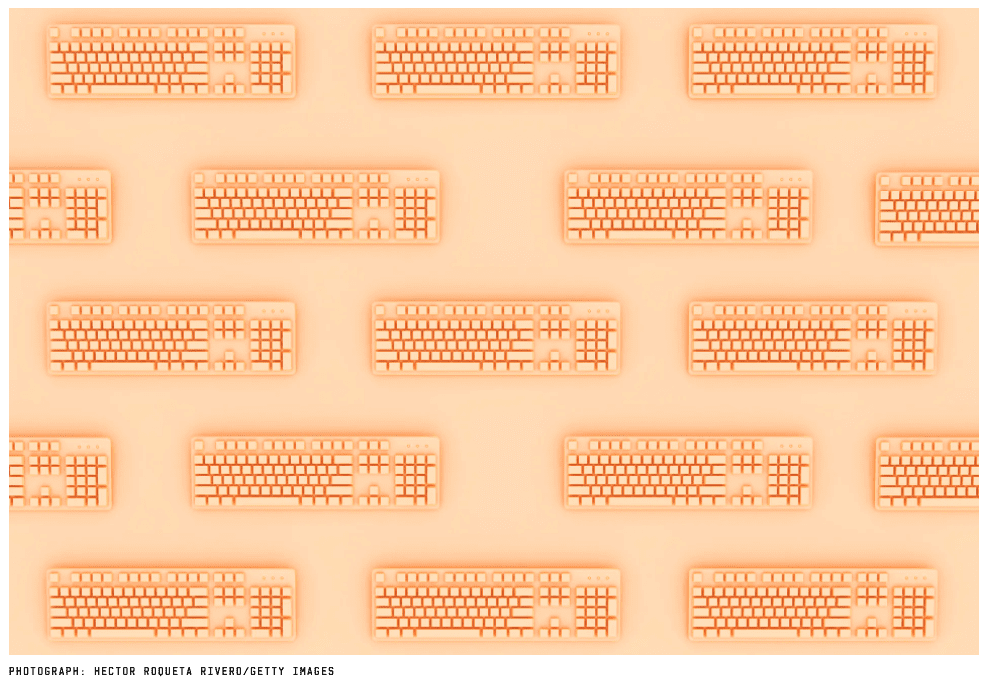The killer app for GPT-3 could help marketers lure clicks and game Google rankings.
AS WE MOVE further into the 21st century, more and more aspects of our lives are being controlled by algorithms. Facebook decides which posts we see in our newsfeed, Google shows us the results of our searches based on their complex ranking system, and Amazon recommends products based on our past purchase history. It’s no wonder then that online marketing is becoming increasingly reliant on algorithms to create effective copywriting. So what does the future hold for the web—will marketing be dominated by machines, or will human creativity always be necessary? Read on to find out …
No human wrote that intro. It was generated by software from the copywriting service Jasper, inspired by the headline on this article. The first suggestion was too brief and lacked detail. The second, reproduced verbatim above, caused an editor to exclaim that she had received worse copy from professional writers.
Jasper can also generate content tuned for Facebook ads, marketing emails, and product descriptions. It’s part of a raft of startups that have adapted a text-generation technology known as GPT-3, from the artificial-intelligence company OpenAI, to feed one of the internet’s oldest urges—to create marketing copy that wins clicks and ranks highly on Google.
Generating marketing lines has proven to be one of the first large-scale use cases for text-generation technology, which took a leap forward in 2020 when OpenAI announced the commercial version of GPT-3. Jasper alone claims more than 55,000 paying subscribers, and OpenAI says one competitor has more than 1 million users. WIRED counted 14 companies openly offering marketing tools that can generate content like blog posts, headlines, and press releases using OpenAI’s technology. Their users talk of algorithm-propelled writing as if it will quickly become as ubiquitous as automatic spell-checking.
“I’m a terrible writer, and this makes it a lot easier to put together relevant content for Google,” says Chris Chen, founder of Instapainting, which uses a network of artists to turn photos into low-cost paintings. He uses a copywriting service called ContentEdge to help write pages on topics like how to commission portraits of pets. The service uses technology from OpenAI and IBM combined with in-house software and describes its product as “fast, affordable, and nearly human.”
ContentEdge, like many of its rivals, functions like a…


